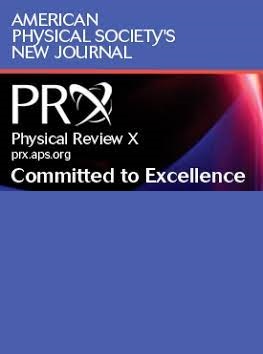栽植推理的四次量子加速
IF 15.7
1区 物理与天体物理
Q1 PHYSICS, MULTIDISCIPLINARY
引用次数: 0
摘要
我们描述了一种用于种植噪声kXOR问题(也称为噪声稀疏学习奇偶性)的量子算法,该算法在使用指数级更少的空间的同时,实现了比最著名的经典算法近(四次方)的加速。我们的工作推广和简化了Hastings[]之前的工作,建立在他的张量主成分分析(PCA)问题的量子算法的基础上。我们使用基于Kikuchi方法的通用框架来实现量子加速(恢复张量PCA的四次加速),我们预计它将为进一步种植的推理问题产生类似的加速。这些加速依赖于这样一个事实,即植入推理问题自然地实例化了引导稀疏哈密顿问题。由于植入噪声kXOR问题已被用作某些密码结构的组成部分,我们的工作表明其中一些容易受到超二次量子攻击。2025年由美国物理学会出版本文章由计算机程序翻译,如有差异,请以英文原文为准。
Quartic Quantum Speedups for Planted Inference
We describe a quantum algorithm for the Planted Noisy kXOR Problem (also known as Sparse Learning Parity with Noise) that achieves a nearly (fourth-power) speedup over the best known classical algorithm while using exponentially less space. Our work generalizes and simplifies prior work of Hastings [], by building on his quantum algorithm for the tensor principal component analysis (PCA) problem. We achieve our quantum speedup using a general framework based on the Kikuchi method (recovering the quartic speedup for Tensor PCA), and we anticipate it will yield similar speedups for further planted inference problems. These speedups rely on the fact that planted inference problems naturally instantiate the guided sparse Hamiltonian problem. Since the Planted Noisy k XOR Published by the American Physical Society 2025
求助全文
通过发布文献求助,成功后即可免费获取论文全文。
去求助
来源期刊

Physical Review X
PHYSICS, MULTIDISCIPLINARY-
CiteScore
24.60
自引率
1.60%
发文量
197
审稿时长
3 months
期刊介绍:
Physical Review X (PRX) stands as an exclusively online, fully open-access journal, emphasizing innovation, quality, and enduring impact in the scientific content it disseminates. Devoted to showcasing a curated selection of papers from pure, applied, and interdisciplinary physics, PRX aims to feature work with the potential to shape current and future research while leaving a lasting and profound impact in their respective fields. Encompassing the entire spectrum of physics subject areas, PRX places a special focus on groundbreaking interdisciplinary research with broad-reaching influence.
 求助内容:
求助内容: 应助结果提醒方式:
应助结果提醒方式:


